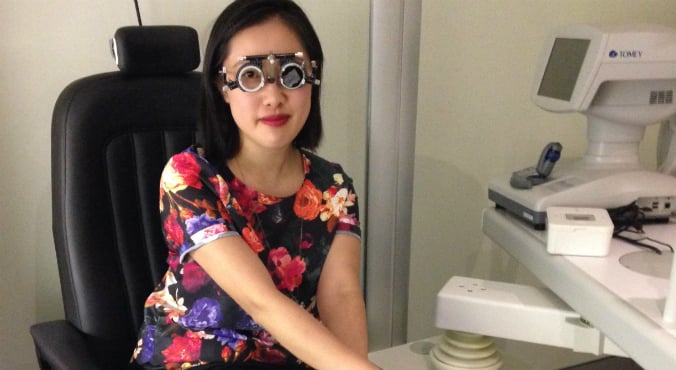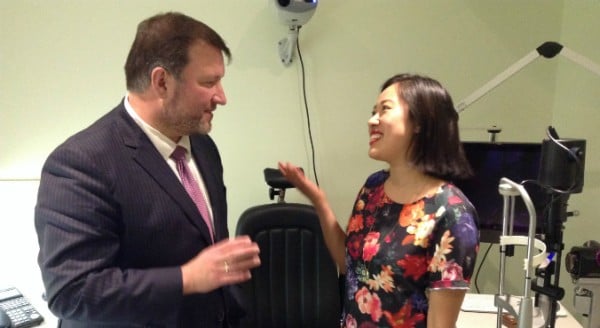
Image: Carla having her eyes tested, and looking pretty damn hot in the process.
“Enough is enough.”
That’s what I said to my glasses, which I’ve worn since kindergarten.
I’m in my early thirties, and all of a sudden it feels like everything is just wrong with my glasses. They seem constantly smudgy, no matter how often I clean them. The weather is never right: raindrops splatter on the lenses, and when it’s sunny, I’m playing the on-off juggling game between my prescription sunglasses and usual specs.
RELATED: These are the most popular plastic surgery procedures in Australia’s capital cities.
When you wear glasses for almost your entire life, you reach a certain age when you’re just… over it. Laser eye surgery became enticing, and I wanted to know everything about it. I booked myself in to see Dr Con Moshegov, a Sydney-based ophthalmologist and clinical lecturer at Sydney University who’s also a laser eye surgeon.





